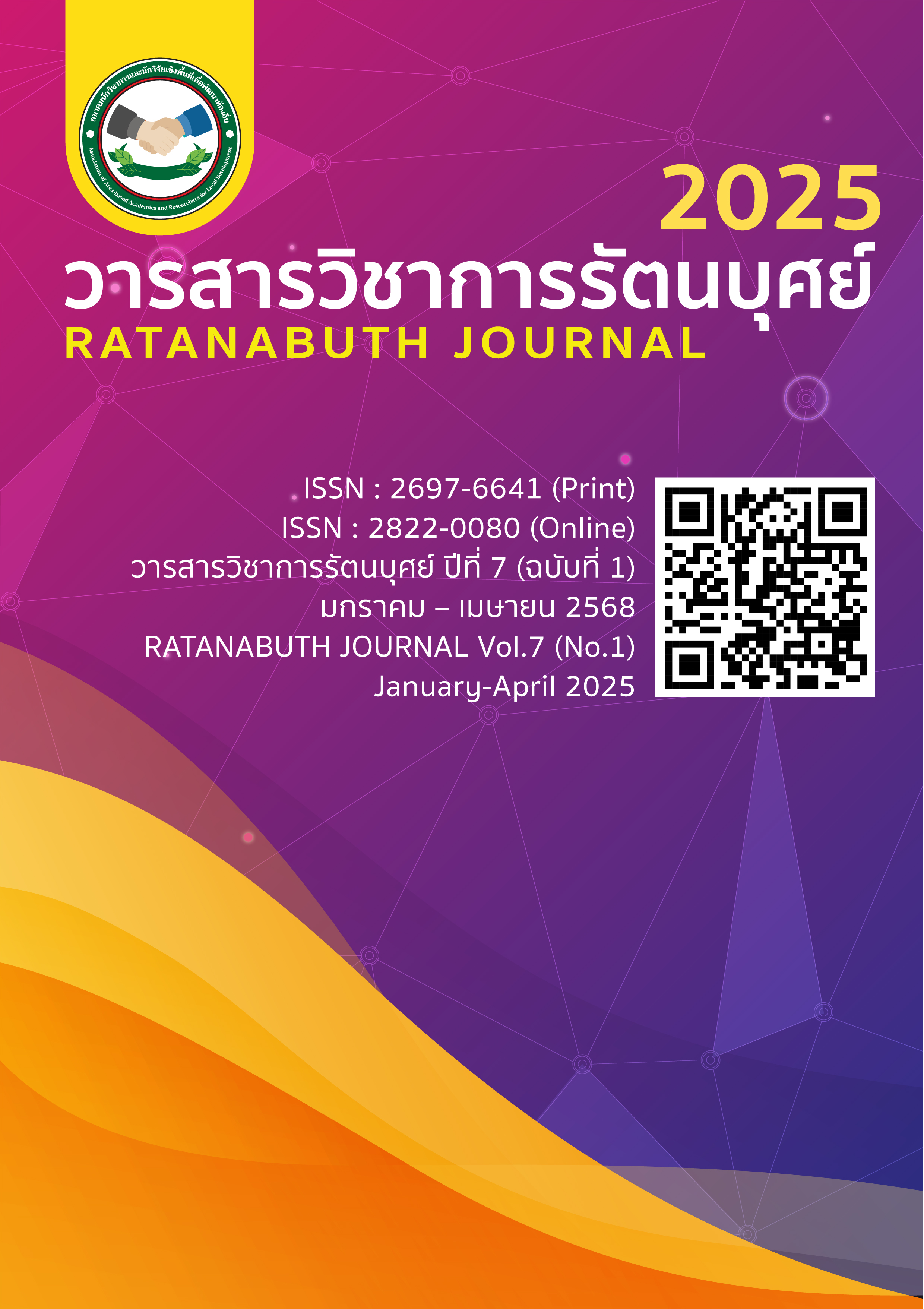Ecosystem Factors that Affecting Chinese Students' Decision to Enter Higher Education Ecosystem Factors that Affecting Chinese Students' Decision to Enter Higher Education
Main Article Content
Abstract
The objectives of this research were to 1) study the factors of the educational ecosystem affecting Chinese students pursuing higher education, 2) examine the decision-making processes of Chinese students in choosing higher education, and 3) investigate how the educational ecosystem influences their decisions. This study utilized a quantitative research approach. The sample group consisted of 400 Chinese students currently enrolled in higher education at public and private universities in Bangkok and surrounding areas. The research instrument was a questionnaire. Data analysis included descriptive statistics such as frequency distribution, percentage, mean, and standard deviation, processed using statistical software.
The findings revealed that: 1) The factors of the educational ecosystem included the physical environment, cost-related aspects, and personnel. 2) Decision-making regarding pursuing higher education was influenced by expectations and values related to personnel, with positive expectations having a significant impact. 3) The educational ecosystem's factors, especially personnel-related values, positively influenced the decision-making of Chinese students in higher education.
Article Details

This work is licensed under a Creative Commons Attribution-NonCommercial-NoDerivatives 4.0 International License.
References
จุฑารัตน์ สุขน้อย. (2563). การตัดสินใจเลือกศึกษาต่อในระดับอุดมศึกษาของนักเรียนมัธยมศึกษาตอน ปลาย โรงเรียนท่าศาลาประสิทธิ์ศึกษา. สืบค้นเมื่อ 31 มกราคม 2567 จาก https://mmm.ru.ac.th/MMM/IS/vlt15-1/6114993623.pdf.
ในตะวัน กำหอม. (2559). การวิจัยทางการศึกษา (เล่ม 1). มหาสารคาม: โรงพิมพ์ทีคอม.
วัชรีญา บุญมา. (2564). ปัจจัยที่มีผลต่อการตัดสินใจเลือกศึกษาต่อมหาวิทยาลัยในประเทศไทยของ นักศึกษาชาวจีน.วิทยานิพนธ์ปริญญามหาบัณฑิต.กรุงเทพฯ: มหาวิทยาลัยเกริก.
สมหญิง จันทรุไทย. (2566). ระบบนิเวศการเรียนรู้และการสอนในการเรียนรู้ออนไลน์: ที่มีต่อผลสัมฤทธิ์ ทางการเรียนวิชาการศึกษางานวิจัยทางหลักสูตรและการสอน สำหรับนักศึกษาบัณฑิตศึกษา. สาขาวิชาบริหารการศึกษา คณะศึกษาศาสตร์ มหาวิทยาลัยกรุงเทพธนบุรี.
สำนักข่าวอิศรา. (2566). 10 ปี จีนอันดับหนึ่ง! ส่องสถิติ น.ศ.ต่างชาติในไทยปี 55-65 เมียนมาครองเบอร์ สอง. สืบค้นเมื่อ 2 กรกฎาคม 2567 จาก https://www.isranews.org/article/isranews- scoop/115794-isranews-09.html
สำนักงานเลขาธิการสภาการศึกษา. (2564). สภาพการจัดนิเวศการเรียนรู้ที่เหมาะสมกับบริบทประเทศไทย. กรุงเทพฯ: เอส.บี.เค การพิมพ์.
หลิงหยุน หยาง, & กมลทิพย์ คำใจ. (2560). ปัจจัยที่มีอิทธิพลต่อนักศึกษาจีนในการเลือกศึกษาต่อใน มหาวิทยาลัยราชภัฏเชียงใหม่. วารสาร มจร นครน่านปริทรรศน์, 1(2), 73–89.
อภิชญา สวัสดี. (2565). แนวทางการจัดระบบนิเวศการเรียนรู้ภายในสถานศึกษารองรับการเรียนรู้เชิงรุก. สาขาวิชานวัตกรรมการจัดการสิ่งแวดล้อม วิทยาลัยนวัตกรรมการจัดการ. มหาวิทยาลัยราชภัฏวไลย อลงกรณ์ในพระบรมราชูปถัมภ์.
อิษฎา นรเศรษฐ์พิศาล. (2560). ความคาดหวังของผู้ปกครองที่มีต่อการเรียนภาษาจีนของนักเรียน โรงเรียน สาธิตแห่งมหาวิทยาลัยเกษตรศาสตร์ โครงการการศึกษาพหุภาษา. ศูนย์วิจัยและพัฒนาการศึกษา จังหวัดชลบุรี. มหาวิทยาลัยบูรพา.
Kondratova, L., Machů, V., Höschl, C., & Thornicroft, G. (2017). A blind spot on the global mental health map: A scoping review of 25 years' development of mental health care for people with severe mental illnesses in Central and Eastern Europe. The Lancet Psychiatry, 4(8), 634–642.


